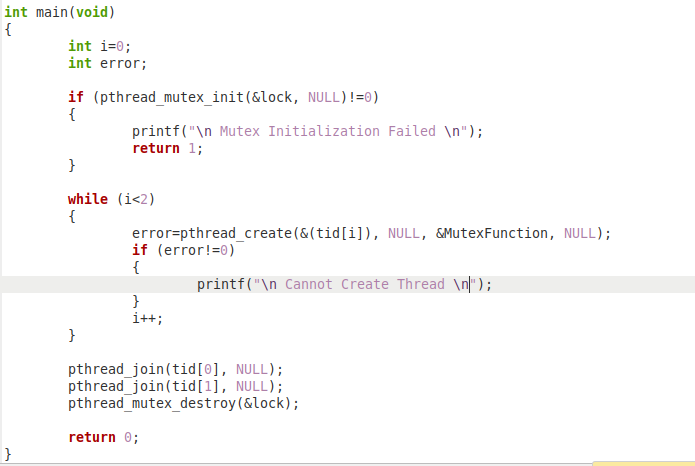

Note, by the time the thread is joined with or detached, it may have well finished executing. This could lead to issues, for example, if the thread refers to variables in that outer scope. This is achieved by detaching the thread.

This thread executes and exits by itself. So, the program will exit the scope, whether this thread finished executing or not. The runtime leaves the thread to run on its own.Note the language, it is the outer scope that joins with that thread. This is achieved by joining with that thread. The runtime exits the scope, only after that thread finishes executing.Once a thread has been started within a scope (which itself is running on a thread), one must explicitly ensure one of the following happens before the thread goes out of scope: Here, I will try to present it in a more beginner friendly manner. Read up on detaching C++ threads and joining C++ threads.Įric Leschinski and Bartosz Milewski have given the answer already. Usleep(1000000) //wait so that hello can be printed.Ĭompile and run: ~/foo4/39_threading $ g++ -o s s.cpp -pthread -std=c++11 } //thread handle is destroyed here, as goes out of scope! So if you don't want to terminate your program, make sure you join (or detach) every thread. However, detached threads are very tricky, since they might survive till the end of the program and mess up the release of resources. Or it could detach the thread (a detached thread is not joinable). It could quietly join - but join might never return if the thread is stuck. (2) One must not call pthreadjoin() on a thread that has already been joined (since the ID may have been re-used). The Standard Committee had two other options for the destructor of a joinable thread. Notes: (1) If thread has already terminated then pthreadjoin() will return immediately. Note the only difference from the first one is the lack of the sleep(1) call in main.When a thread object goes out of scope and it is in joinable state, the program is terminated. However, that isn't known yet so I wanted to open this issue to keep track of this problem.Ī slight variation on this is that with the following version, the application will eventually hang (for me, always after the creation of 255 threads): Given the backtrace, this might be connected to our various signal problems.

#10 lkl_syscall (no=0, params=0x7fe03dabf0d0) at arch/lkl/kernel/syscalls.c:192 Thread 6 "ENCLAVE" received signal SIGSEGV, Segmentation fault.Ġx00007fe0000991e8 in prepare_signal (sig=33, p=0x7fe03fe70b00, force=false) at kernel/signal.c:895 Printf( "TEST PASSED (pthread_join) runs= %i \n ", i) īoth myself and get a segfault fairly early on. Printf( "Cancelled worker thread (run= %d) \n ", i) Printf( "Cancelling worker thread (run= %d) \n ", i) Printf( "Failed to create thread (ret= %i) \n ", ret) Printf( "Created worker thread (run= %d) \n ", i) Ret = pthread_create(&thread1, NULL, thread_worker, NULL) Printf( "Creating worker thread (run= %d) \n ", i) # define RUNS 10000 void* thread_worker( void* arg) * * pthread_cancel-test.c * * This simple test checks that thread creation and cancelling.


 0 kommentar(er)
0 kommentar(er)
